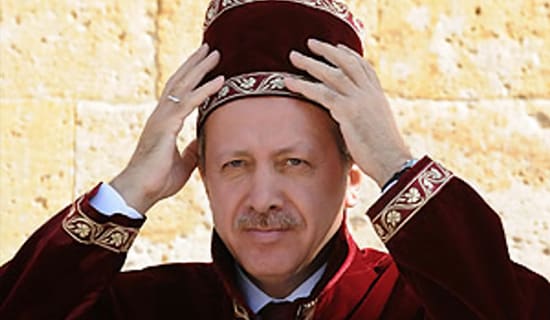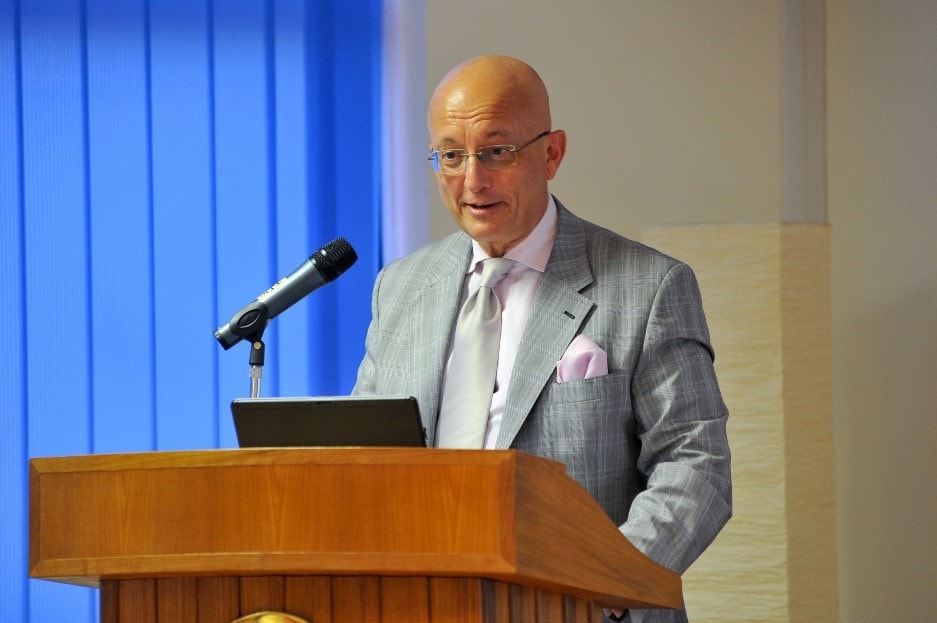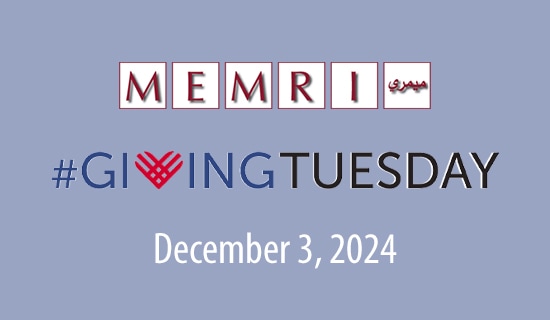The following are excerpts from an interview with Dr. Fou'd Ma'soum, the head of the Kurdish bloc in the Iraqi parliament, conducted at his home in Baghdad by Halim Salman, the publisher of the weekly Al-Tab'ah Al-Jadida:[1]
Halim Salman: "Kurds, you are accused of expanding into Arab land that you wish to annex to the Province [of Kurdistan]. What do you say?"
Dr. Fou'd Ma'soum: "The Kurds have not submitted an official map and should not be accused of swallowing what is not in the Province. The area of Iraqi Kurdistan is about 80,000 sq. km. and represents about 18% of the entire Iraqi territory of 435,000 sq. km. Naturally, the areas identified on unofficial Kurdish maps supported occasionally by official statements include areas that have a mix of Arabs, Kurds, Turkmen, Assyrians and others, starting with Kirkuk, Khanaqeen, and some areas in Mosul. [All three cities are located in northern Iraq and border Iraqi Kurdistan] [Demographic] changes have affected these areas. Kirkuk is the most important area subjected to these changes, to the degree that it has become difficult to determine whether it is a Kurdistani area or a pure Kurdish area. According to Kurdish officials, Kirkuk is Kurdistani, that is to say, it falls within the geographic designation of Kurdistan."
Halim Salman: "How do you explain the demands for separatism by some Kurdish politicians from time to time?"
Dr. Fou'd Ma'soum: "In reality, the demand for the creation of an independent [Kurdish] state has not materialized, despite the administrative separation of the Kurdish area for 12 years (1991-2003). Notwithstanding the insistence on separatism [by the Kurdish people], the Kurdish political parties have continued to emphasize the affiliation with Iraq and the implementation of Kurdish parliamentary democracy [model] across all of Iraq.
"The Province hosted the Iraqi opposition forces until the fall of the previous regime. However, the Kurds cannot find any solution for their nationalist problem other than through the affiliation with democratic Baghdad. Following that, the two [Kurdish] political parties [the Patriotic Union of Kurdistan and the Democratic Party of Kurdistan] participated in the elections of January 2005, gaining 70 seats [of a total of 275 seats]. For the first time in the history of Iraq, a Kurd has become the president of Iraq and the Kurds control sovereign ministries such as the ministry of foreign affairs and the ministry of planning, as well as [the office] of the deputy prime minister, and the post of the chief of the supreme court. When Jalal Talabani, the President of the Republic of Iraq, was asked about the fate of the demand for a Kurdish state, he answered precisely: We the Kurds have decided to stay with Iraq. There is no demand for a Kurdish state and we are working hard to build a federal, democratic, unified Iraq. He [Talabani] added in jest: One of the Arab leaders [the reference is apparently to Mouammar al-Qaddafi of Libya] is continuing to demand a Kurdish state. But we don't demand it. Times have changed."
Halim Salman: "Some question your intentions regarding Kirkuk. They say that in the event the Kurds officially annex Kirkuk to Kurdistan, they will declare secession [from Iraq]."
Dr. Fou'd Ma'soum: "Our Arab brothers believe that if we win Kirkuk we will secede from Iraq. This talk has no base in truth. We are Iraqi just as you [the interviewer] are Iraqi, and why should we secede from Iraq? Kurdistan is an Iraqi territory for all Iraqis and for all religions, communities, and nationalities. There are Kurds in Baghdad, Omara, Ramadi, and Basra [Omara and Basra are in southern, mostly Shi'ite Iraq; Ramadi is in western, mostly Sunni Iraq] and in all areas of Iraq. There are Arabs in Erbil and Suleimaniyah [the two major cities in Iraqi Kurdistan, Erbil being the capital of the Kurdish Province]. No one is told to leave and no one is transgressed against just because they are Arabs. The existence of oil in Kirkuk is not an incentive for the Kurds to leave their mother country. According to studies, the oil in Kirkuk is becoming scarce but oil is found in all other areas of Kurdistan, as are valuable minerals other than oil. Iraq is swimming in lakes of oil. We are asking for the correction of mistakes committed by the previous regime – the destruction of Kurdish villages, the separation of administrative districts and sub-districts from Kurdistan and their annexation to other governorates, and the practice of forced expulsion [of Kurds] for the purpose of Arabization. We are asking for the restoration of our rights by reintegrating into Kurdistan those administrative districts and sub-districts separated from Kurdistan and for the return of the expelled refugees to their homes."
Halim Salman: "We have noticed a measure of confusion in Kurdish quarters when [James] Baker published his report [the Baker-Hamilton Report] on Iraq; in particular, they expressed displeasure with a recommendation calling for postponing the case of Kirkuk. What are the implications of the [recommendation]?"
Dr. Fou'd Ma'soum: "I don't think there is any confusion. There is an Iraqi constitution approved by the Iraqi people, and we operate within the framework of this constitution. There is a clear provision and a clear article [Article 140] regarding the normalization of the situation in the City of Kirkuk. External interference would not be helpful in the current situation and we refuse to take dictates from the outside. The High Commission charged with the implementation of Article 140 of the Constitution has decided to send back to their homes in central and southern Iraq those who were brought to Kirkuk [as part of the Arabization program by the Saddam regime] and to offer them appropriate financial compensation consistent with the normalization process in Kirkuk. Generally, we think [the Baker Hamilton report] has arrived at a number of negative conclusions regarding many of the fundamental questions.[2] [The report's] recommendations are not practical, and interfere in the specific responsibilities of the Iraqi parliament, the government, and the constitution. In fact, it [the report] abrogates the constitution and calls for the participation of international experts in drafting the amendments in the constitution, which has its own specific measures for making amendment."
Halim Salman: "Do you believe that the Kurds would be keen to embrace the other Iraqi segments [ethnic groups] in Kirkuk if Kirkuk were to join Iraqi Kurdistan?"
Dr. Fou'd Ma'soum: "Many segments of the Iraqi people currently live in Kurdistan and enjoy full rights. Kirkuk and the other cities in Iraqi Kurdistan are open to all Iraqis to live in them. These are Iraqi cities, and it is the right of any Iraqi citizen to settle in any location without conditions, provided doing so does not change the demographic map. There are thousands of Arab families that have settled in Kurdish cities, but they did not do so in pursuit of chauvinistic policy or for the purpose of Arabization or any similar policy practiced by the previous regime."
Halim Salman: "How do you respond to the accusations that you have sent Iranian and Turkish Kurds to live in Kirkuk to benefit from their vote in a [future] referendum on the city?"
Dr. Fou'd Ma'soum: "No Kurdish families, Iraqi or non-Iraqi, have been settled in Kirkuk. There are rumors from unreliable sources about the presence of Iraqi, Iranian, and Kurdish families who were settled in Kirkuk to benefit from their votes. I challenge any party to present the name of a single person brought in from outside Kirkuk who was not originally from Kirkuk. We face a problem of Turkmen and Kurds from Kirkuk who currently reside in Erbil and Suleimaniyah who refuse to be repatriated to Kirkuk because of its security circumstances and who demand compensation and financial incentives to return to their homes. The Kurds will respect any decision taken by the citizens of Kirkuk after the processes of normalization, census and referendum have been completed; in other words, the Kurds will accept the implementation of Article 140 even if the citizens were to decide not to be incorporated into the Kurdistan Province."
Halim Salman: "Do you see the need for normalizing the relationship between the Kurdish and Arab peoples in Iraq?"
Dr. Fou'd Ma'soum: "There is no feeling of discomfort between the Arabs and Kurds in Iraq. And this has saved the country from the disaster of a civil war. For example, let's take Kirkuk which has Arabs, Kurds, Turkmen and Assyrians who have had no problems with each other. Although the political struggles are mounting in Kirkuk, tensions have not reached a stage where one will take up arms against another. There are attempts by extremists to foment trouble between Arabs and Kurds in Mosul. For this reason, the President of the Republic (Talabani) has sent a delegation to deal with the situation and prevent attempts to create chaos there."
[1] Al-Tab'a al-Jadida (London), March 2007.
[2] Nimrod Raphaeli, "The Anti-Kurdish bias in the ISG Report," www.kurdishmedia.com/articles.asp?id=13840 .





